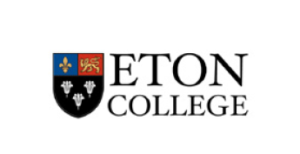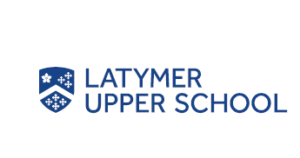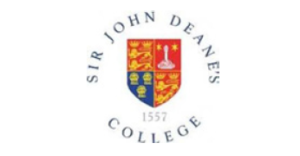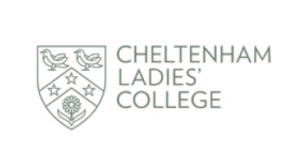Get into Medicine. The UCAT & Interview prep trusted by schools.
I'm looking for
GO
Quality Support, Proven Track Record
Used by Hundreds of Schools and Thousands of Applicants Every Year.
40,000+ Students Taught
We've taught 40,000+ aspiring medics through our trusted courses, conferences & tutoring.
500+ School Partners
We've taught at 500+ schools worldwide & 64% of The Sunday Times’ Top 50 independents.
5 Million+ Website Users
We're the home of trusted Medicine application advice - with millions of users, every single year.
5*- Rated By Thousands of Students
The platform loved by students and schools.
“Couldn't have gotten 4 medical school offers without TMP! It helped me get my offer for my dream university. Invaluable help that I would recommend to anyone.”
Independent Review
“Helped me score all of my interview based medical applications! Definitely recommended… three thumbs up! (If that was possible)”
Independent Review
“I received four offers. I'm the first person to have applied to medicine from my school for 5 years, so I don't think I'd have got in without the Medic Portal!”
Independent Review
Our Preparation Is Award-Winning
Recognised For Years of Great Reviews.
5* Platinum Award
We’ve been given a platinum award by independent review platform Feefo, in recognition of 3+ years of 5*-standard reviews. When you prepare with us, you know that you’re getting the teaching that’s top-rated by schools and students around the world.

We've Worked With 500+ Schools
Top Schools Trust Us. So You Can, Too.








“I would go as far as to say that any student who does not avail themselves of the support that The Medic Portal offers would be at a distinct disadvantage"
Teacher
Top London School
What's Popular Right Now?
See what students like you are signing up for today.

UCAT Tutoring - Score Higher in 3 Steps
Looking for private UCAT Tutors? Take your preparation to the next level with 1-2-1 UCAT tutoring, tailored to you.

UCAT 2024 - See All Our Trusted Prep
Want the doctor-created strategies that can unlock higher UCAT scores? Check out our range of trusted teaching.

UCAT Course 2024 - In-Person or Live Online
Get the 5-star-rated UCAT strategies trusted by 150+ schools. Choose from In-Person Courses or Online UCAT courses.

UCAT Packages - Best Prep, Best Price
Get the best UCAT prep at the best price. Combine live teaching, e-Learning, practice tests & tutoring. Save 25%!

Australia & NZ - Tailored UCAT Prep
We're bringing our score-boosting UCAT strategies to Australia with some tailored ANZ packages, just for you!

Free UCAT Resources
Check out these free resources to get prepared for the UCAT test
Pick Your Stage For Targeted Prep
We help students & schools navigate the pathway into Medicine.
How Do You Like To Learn?
Online & In-Person. Group Classes or 1-2-1. Learning, Tailored to You.
Get Informed With Free Guides
Every application angle covered. Trusted by millions of users.

The Trusted Medicine Application Guide
The most popular resource for aspiring medics, packed with information and advice for all stages of the application process.

How To Choose The Best Med School
This guide walks you through each stage of choosing a Medical School - and also includes a Med School Comparison Tool!

Your Guide To The UCAT Test For 2024
Everything you need to know about the University Clinical Aptitude Test (UCAT). The trusted free guide, read by thousands every year!

Medical School Interviews - The Ultimate Guide
What to expect at your interviews - including which topics may come up, and what each university is looking for.
Check Out Our Latest Blogs
Find out what's new. Discover top tips to get ahead.

Dental Amalgam: An Interview Guide
A hot topic in dentistry over the past decade in the UK has been whether or not to eliminate the use of amalgam.

Here are the eight most common personal statement mistakes - and how to avoid them!


Which UK Medical Schools Do Not Require UCAT?
Find out which UK Medical Schools do not require the UCAT - including BMAT universities and more.

When Is A level Results Day 2024?
Wondering what to expect from A level results day 2024? Find out the dates, what to expect and about the crucial next steps.

What To Wear To A Medical School Interview
If you're wondering what you should wear to your Medical School interview, we asked a medical student for their advice.

What is the Highest UCAT Score Ever Achieved?
Find out what the highest UCAT score achieved has been as well as what scores are considered good, average, and low.

5 Things You Should Do Over Easter To Get Those Grades
The Easter holidays are always a marker of exams looming - here are five simple tips to make the most of your revision!

The 3 Most Effective A-Level Revision Techniques
Struggling to find a revision technique that works for you? Read our tips here!

5 Easy Ways to Make Your Personal Statement Fit the Character Count
The character count for the personal statement can be tricky. Here's how to cut down unnecessary characters!
We're Here To Help
Discuss your goals. Hear more about our services.
4402088344579 [email protected]Get Free Application Updates
Don't Miss Out. Join Our Newsletter Today.
By submitting your email, you will be signed up for free information and promotional emails from us. You can change your settings or unsubscribe at any time.
